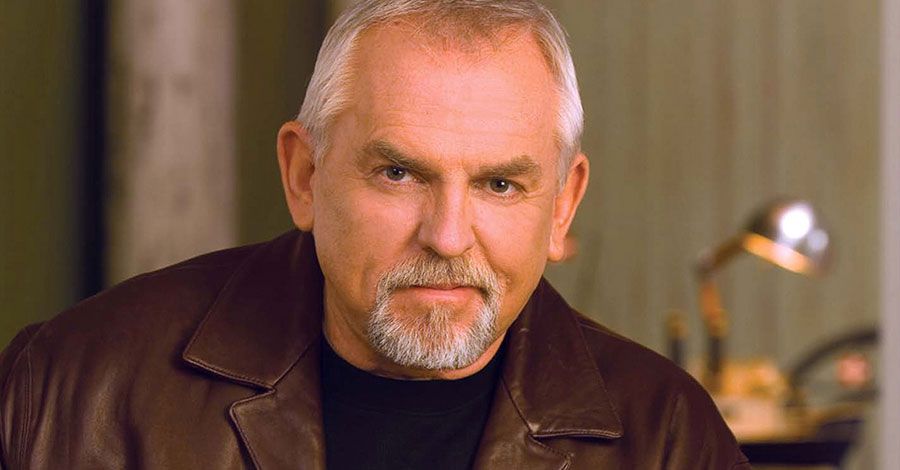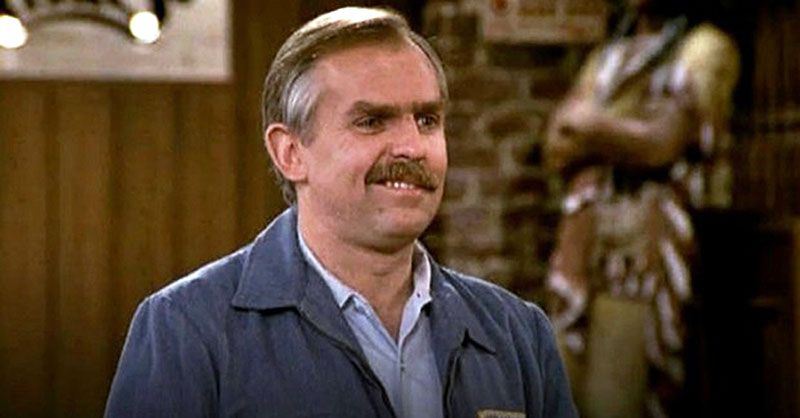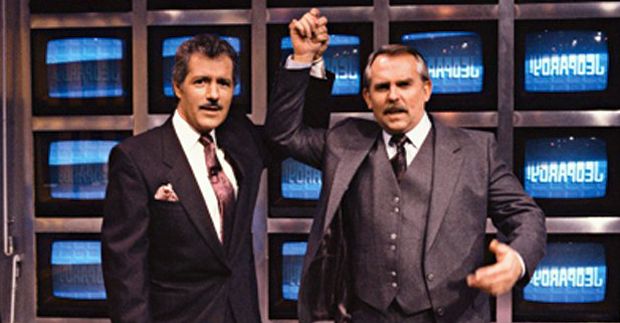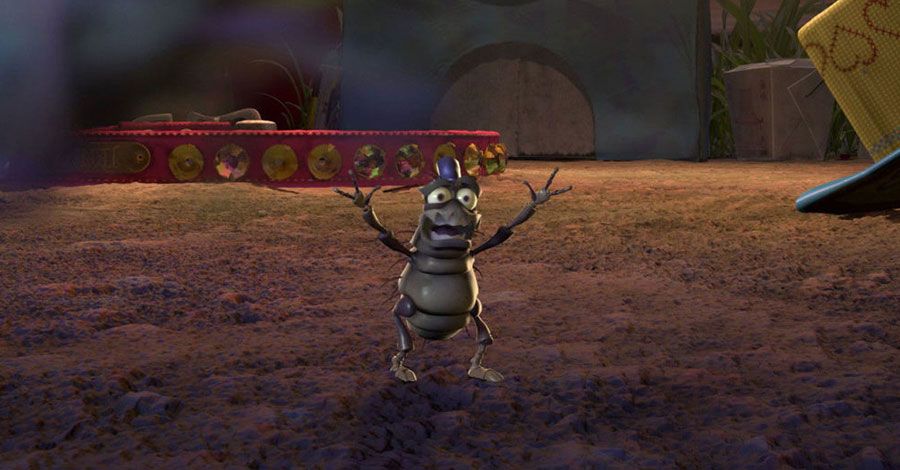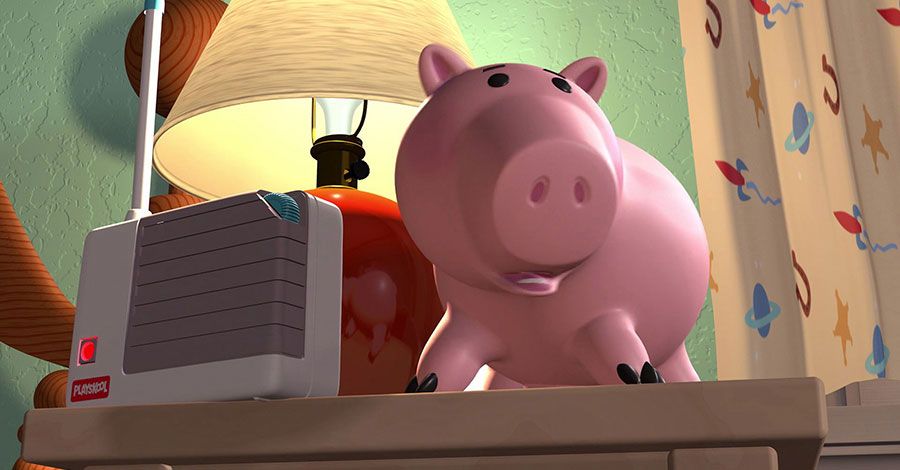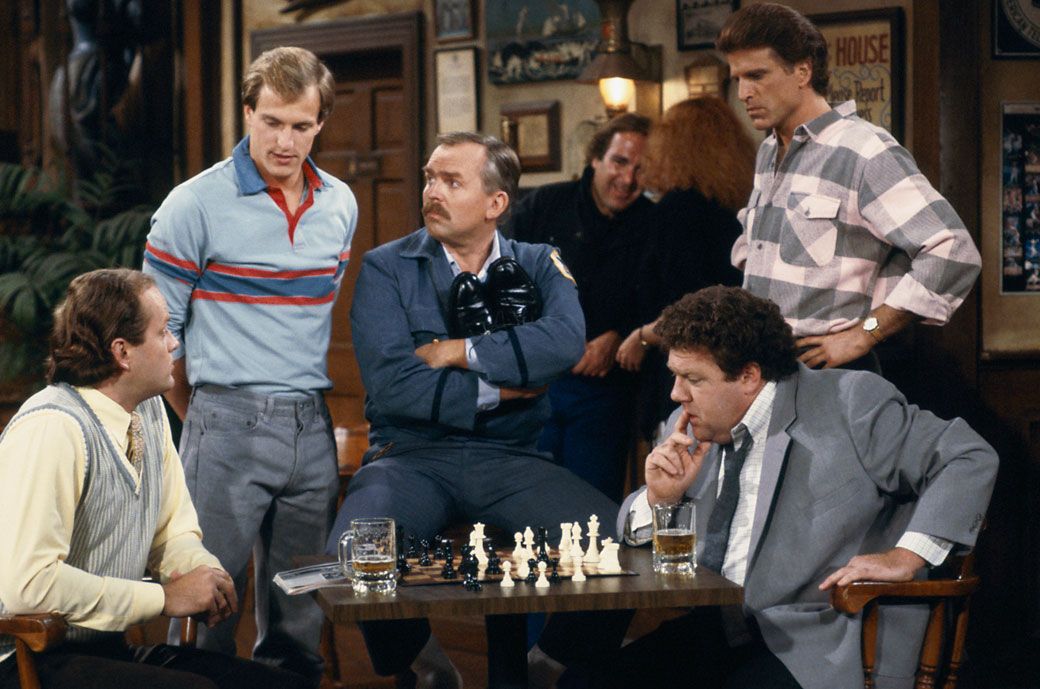With a career spanning four decades of television and film, there was plenty to discuss at John Ratzenberger's spotlight panel at the Chicago Comic & Entertainment Expo.
Following a round of trivia that touched upon many of the veteran actor’s career highlights, moderator Clare Kramer ("Buffy the Vampire Slayer") introduced a sizzle reel of Ratzenberger's filmography, featuring clips from "Cheers," "Star Wars: The Empire Strikes Back," "Finding Nemo," "Cars," "Toy Story" and more. Ratzenberger was then brought out to applause, with Kramer complimenting him on his "dapper suit" and praising his ability to bring a genuine quality to his characters.
"If there's a secret to that, it's because I didn't go to acting school," said the 68-year-old actor.
Kramer brought up his career as a journeyman carpenter in the '60s, a profession that took him to Woodstock. "I was actually building a house for a guy in Bearsville, New York, next to Woodstock, and the word in town was there was some sorta music thing going on that they need a stage built. I stood in line, and they asked if I could drive a tractor and I said, 'Sure.' I'd never driven a tractor. I started it up and everyone's watching. I started it and it went 'vroom' and then I almost tipped it over backwards -- but then I bounced it and carried on. That was my first time driving a tractor, I was at Woodstock." Ratzenberger summed up the moral of the story, saying never say that you can't. "If there's money in it, absolutely."
Kramer brought up "Cheers," noting that know-it-all mail carrier Cliff Clavin initially wasn't even a character on the show. "I had, prior to walking in that room [to audition], spent 10 years in Europe traveling, doing improv comedy," Ratzenberger said. "I started writing comedies for the BBC and came to LA on a writing job. I finished that and someone mentioned 'Cheers,' and someone said it was a show set in Boston and asked if I wanted to go in on it. I said, 'Yeah, sure.' I had never auditioned for anything because all the jobs I got in Europe was based on my stage shows. I went in and did a terrible job, embarrassing, so all my dignity was shattered on the carpet. While walking out the door I asked, 'Do you have a bar know-it-all?' The writer part of me took over. I wanted to see -- every bar in New England has a know-it-all. So I improvised whatever, 'You know the original coffee table was a tree stump.' I just wanted to get them to laugh enough so I could escape with my dignity. Two days later I was packing to go back home to London and I got the call to try the character out for seven episodes."
He suggested Cliff be a security guard, but producers changed his occupation to mail carrier because he could bring in more information. "There's not a lot of stories to tell, but a mailman is all over the place. As long as he's a character with keys dangling from his belt -- that was the key, the pun is intended. One of the key elements is having keys because someone with keys dangling is showing something they know. Every key is something they have knowledge of."
Ratzenberger said he improvised a lot in the classic episode in which Cliff goes on “Jeopardy.” "I used to throw in my own little spices from time to time." One of those spices was Cliff's white socks, which he chose to wear in reference to French comedian Jacques Tati. "He could walk through a room and cause chaos, but all he did was walk through the room,” he said. “My white socks were my homage to Jacques Tati," who also wore his pants hiked up so his socks were visible. "Years later I met John Cleese, and we talking about that, and Jacques Tati was his influence for 'Silly Walks.' That's where it came from."
Kramer moved the subject to Pixar, calling Ratzenberger -- who has voiced a character in every one of the studio’s films -- the animation studio's lucky charm. "I always thought it was a clerical error," the voice actor said of his repeat performances. "Did they know I was in the other one? I'm not saying a thing."
When asked about his favorite, he settled on P.T. Flea from "A Bug's Life.” "He just cracks me up. He'd sell his grandmother for a nickel,” Ratzenberger said. “But then you have movies like 'Up' where the first 10 minutes you're crying your eyes out. Pixar is the only film studio where you can go and pitch a story like that. Imagine going into Paramount or Warner Bros and saying, 'Listen -- I got an idea for a movie about an 80-year-old guy who attached balloons to his house and floats away to Argentina with a Korean Cub Scout. Any other studio would call security."
Ratzenberger then confirmed that Hamm will be a part of "Toy Story 4," which earned a round of applause. However, he said he “can’t tell” whether Bonnie, who ends up with all of the toys at the end of “Toy Story 3,” will appear in the sequel.
When it comes to pitching an idea to Pixar himself, Ratzenberger said he's always coming up with stories. "If they ever ask me or if they're ever having problems, but no, I love what I do and I love our relationship that we have,” he said. “They're so creative."
Providing an example of that creativity, he recalled, “Pete Docter, who just got the Academy Award for 'Inside Out,' about two years ago I went to do some recording and there was Pete, sitting in the hallway. He was huddled on the floor, back against as cinderblock wall, scribbling. I asked what he was doing and he just had an idea and sat down and started writing it. And that was 'Inside Out.'"
Kramer opened the floor up to questions, with Ratzenberger asking for the house lights to be brought up. He then stood, walking to each side of the stage to directly address the fans asking questions. Someone asked him about his history with improve, and he said back in his day it was just called "making stuff up."
In the '70s, he and his comedy partner would do the same beginning, middle and end of a show and change everything else in between each night. "Improvisation, what it's become, everyone takes classes, but the key is really to shut up [and listen],” he said. “It's like a jazz combo, you're all playing together. It's not just you out there showing how smart you are. ...You're all a group. That's kinda been forgotten. I see 'SNL' and I know a lot of them come out of improv, but it seems like a lot of them are waiting for their shot. The key is to listen to what the other person says."
Ratzenberger said voice acting is "not that hard." He thinks back to a lot of his pre-acting, physical labor jobs when he starts to feel acting is difficult, and it makes him remember how lucky he has it. "Acting is not difficult. Loading cement bags on railroad cars is difficult,” he said. “My take on it is just have fun. Walk in and say, 'God, am I blessed. How lucky am I that I get to sit at a bar, crack jokes, and somebody pays me for it.' To this day I can't get over it."
Ratzenberger revealed he always bases the characters he plays on people he knows. "Cliff is based on the father of a friend of mine when I was kid growing up, and he was local cop, but he was a horse's patootie," he said before launching into a Cliff-like impersonation of the father giving his son every minute detail about how he should go and buy something at the grocery store. "We're standing there listening to him tell him that, holding back laughter."
A fan asked what it's like to meet new generations of "Cheers" fans that have discovered the show via streaming services like Netflix and Hulu. Kramer chimed, in saying the characters and situations are so real that they still resonate. Ratzenberger gave an example, saying he looks at "I Love Lucy" and thinks, "I'm Fred Mertz. [William Frawley] is long gone but there he is, right there when you turn on the TV. That's what it is. It's going to be there forever, which is a great thing for your descendants."
Back on the topic of improvisation, Ratzenberger said he came up with a lot of Cliff's "little-known facts." "All the time, ['Cheers' director] Jimmy Burrows would say, 'Fill in 30 seconds' and say 'action.' One of my favorites was with George Wendt and Paul Willson. I brought them in close and I had a napkin and pencil and said, 'That, gentlemen, is how the tractor seat was invented.' Because when you say something like that, the audience fills in the rest of the story. 'How -- what -- tractor seat? How did that even come up?' Give the punch line and the audience will do the heavy lifting."

